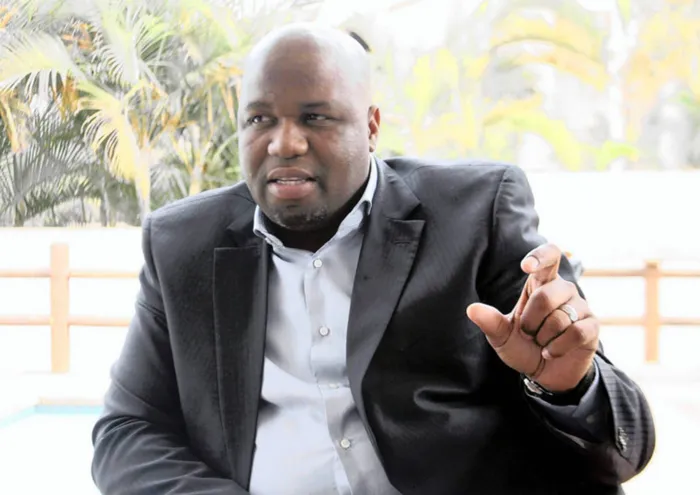Gcaba: I’m the one who was short-changed

Mandla Gcaba. Photo: Nqobile Mbonambi Mandla Gcaba. Photo: Nqobile Mbonambi
Durban - Durban transport boss Mandla Gcaba – accused by municipal officials of running the city’s bus service into the ground – has pointed the finger back at the city, saying it has always short-changed him, making it impossible to operate a “proper commercial venture”.
He denied siphoning R30.7 million out of the service’s funds as an “unsecured loan” to himself, saying it was true that “certain liabilities” were debited to his loan account without his knowledge, and he was “regularising this” and would pay back whatever he owed.
Last week Gcaba filed an opposing affidavit in an urgent Durban High Court application brought by the city early in January to liquidate his close corporation, Tansnat Durban.
His alleged “loan” was exposed in that application by city treasurer Krish Kumar, and backed up by an auditor’s report two years ago stating that if it was not paid back, the company would not survive financially.
Kumar, in his affidavit, said Tansnat owed the city R53m, no financial statements had been prepared in two years, it was struggling to pay its bills and the city had bailed it out too many times.
A liquidator, he said, could recover the loan and sort out the mess while the city made the legal arrangements to take control of the bus service.
Gcaba, however, has accused the city of “going to court with unclean hands”, and says the application is an attempt to take back the bus service – which has about 450 buses and carries 50 000 passengers a day – “via the back door”.
He said Kumar had relied on a work stoppage by some of the bus drivers over the Christmas period as a reason for launching the application, but the stayaway was long over by then. He alleged that it had been caused by city officials who had promised money to pay bonuses but had reneged on that.
Gcaba claims that when Tansnat took over the service five years ago it was on a “break-even model” that was supposed to have been formalised into a commercial one, but this never happened.
“Initially we agreed to be remunerated on a rate per kilometre with a negligible profit margin.
“But this was on the clear understanding that a contract of fixed duration on a proper commercial basis would be concluded to ensure we were compensated at a rate which would generate reasonable profit.”
He said that over time it became clear that the break-even model was not working, and twice Tansnat had received bailouts from the city.
While the “kilometre” rate was adjusted from time to time, this was never done retrospectively. He said that over the entire period of the contract, the city had debited Tansnat about R927m for leasing the buses, while Tansnat had paid the city R888m “and not once was any serious concern ever raised about the quantum of indebtedness”.
Given concerns about the model, the city decided to appoint a team that would take over Tansnat’s bank account and “ring-fence its business operations”.
Gcaba said he agreed to this because he believed the team would discover that Tansnat had been short-changed and, in fact, probably owed the city nothing.
He said the team was due to begin work in mid-January, but he later discovered that the letter of appointment had never been sent to the consultants, KPMG.
Regarding allegations that the company could not pay its debts, he said a dispute with Sars had been resolved and it owed the company R4.5m, the provident fund had “miscalculated the amount owing” and the city had “exaggerated what it was owed”.
He accused Kumar of “distorting facts”.
“An audit will reveal that any payments to me are negligible and nowhere in the region of the amount stated. In any event, I am in a position to discharge this loan if required to do so,” he said, claiming the financial statements for 2013 and last year were being finalised.
“There is no evidence to indicate that we have not provided a reliable bus service. In more than five years the longest work stoppage was four days, and the total number of days lost due to work stoppages was 15 days.”
The city would now file a final affidavit before the matter is set down in court again.
Should an interim liquidation order be granted, it will be backdated to January when the application was first launched.
The Mercury